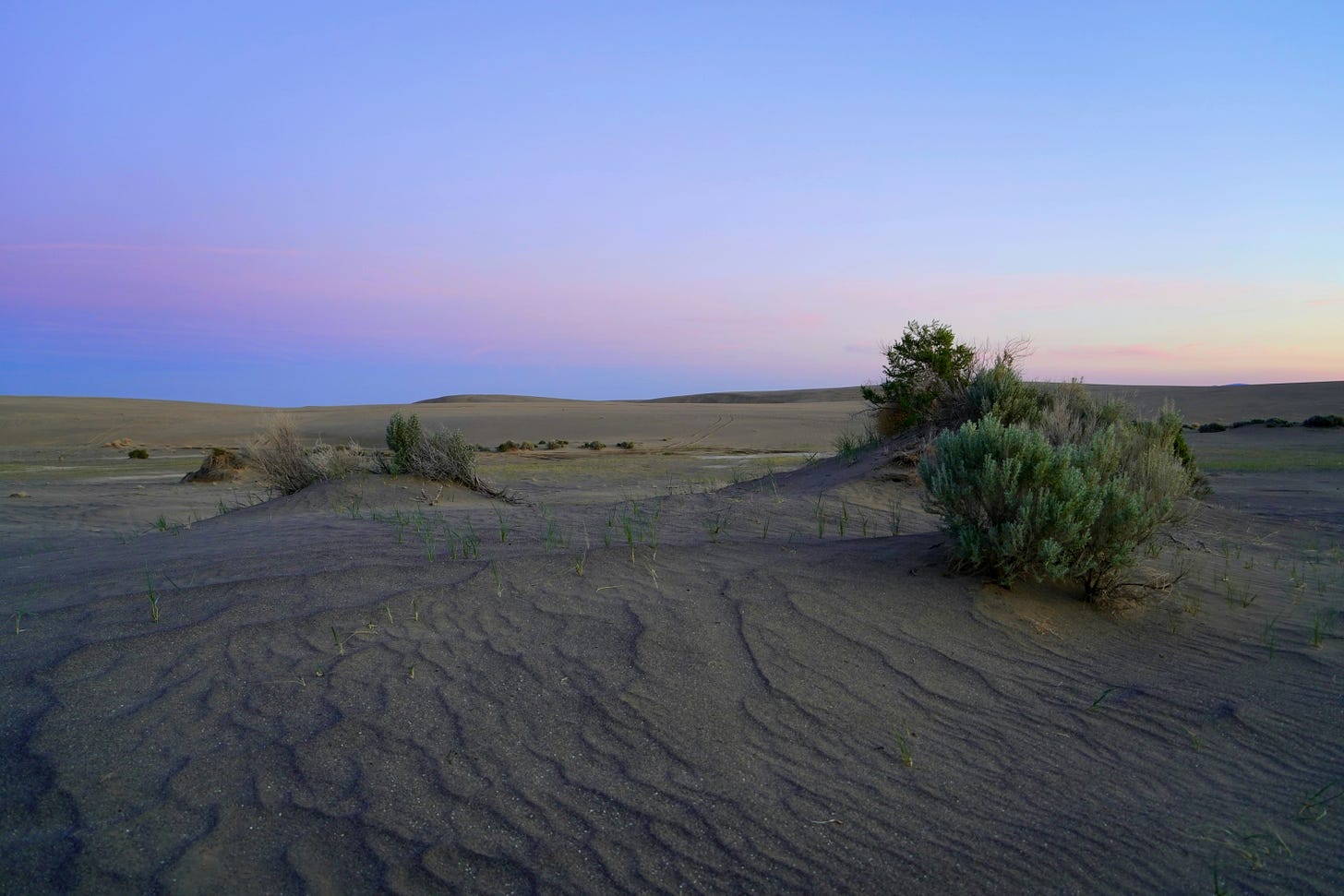Waiting Isn't a Waste
The wilderness, the bondage, and even the suffering is a seedbed for the raw materials of greater worship. Sometimes the greatest pain the building block of the greatest opportunity for ministry.
Photo Credit: Unsplash
Seventeen years ago this month, I headed south towards Louisville, KY. In the year since graduating from college, I wrestled through what my next step should be. I loved studying the Bible. I enjoyed leading a small group of high school girls on Wednesday nights. And I wanted to write, following the footsteps of Elisabeth Elliot. Anything I owned that didn’t fit in my ’96 Toyota Camry I listed on Craigslist.
I was going to seminary.
I loved every minute of my seminary experience. Although I was vastly outnumbered, I fit right in. I’m the only sister in family full of brothers. I had been preparing for this my whole life.
Friends joked that heading to seminary was a fast track to securing a husband, but I wanted none of that. I silently judged the girls who got snatched up quickly, convincing myself that I was going to make it out of that graduate program with my maiden name on my diploma and goals in front of me.
I met Daniel twelve months into my seminary career. All bets were off after our first date, and I quickly became another statistic in the pool of seminary marriages. Pride comes before the fall.
We were married less than a year later, but remained seminary students—studying alongside each other as equals. Daniel has always been my biggest cheerleader. He sees my gifts and values our mutual flourishing. Within a few months it became clear that our finances couldn’t maintain two tuition payments. I still remember exactly where we were when he brought the conversation up with me.
We were eight hours into a fourteen-hour drive between Chattanooga and Louisville when he said “You know I believe in you and your dream of finishing seminary. And if we could make it work, I would. But we can’t afford for both of us to finish right now.” On a practical level it made sense. We wanted to start a family and I wanted flexibility to be home with our children when they came. But I was crushed. The semester started that January and we had only one tuition payment—his.
I didn’t graduate from seminary for another twelve years. True to his commitment, Daniel made sure I finished. He’s always looked for ways for me to continue using my gifts. But there were years where it simply wasn’t possible to do much beyond my own daily Bible reading. I’ve never forgotten the dream deferred in those years. I felt like I was wasting my gifts while I spent my days stuck in a cubicle, attached to a headset in a call center. I didn’t write words for months when I had four children in four years. There are other painful parts of those years that won’t ever hit the page for public consumption, but often, it felt like a waste.
I’ve been working through Exodus in my personal bible reading. I’ve always loved the story of Bezalel and Oholiab in Exodus 36-37. They don’t get a lot of air time, but they remind us that every gift matters. Every talent we’ve been given comes from God, and can be used by him in the kingdom.
What struck me this time reading their story is how they learned their skills. It’s not clear how they learned to sew or create elaborate materials from gold. But they’re coming from Egypt, meaning they spent their entire lives in bondage. By the time we meet them in Exodus 36, they’re a few weeks removed from the chains of Egypt.
The skills didn’t emerge overnight, or when they crossed the Red Sea. These skills were cultivated over months and weeks of practice—in Egypt. They learned how to sew fabric, create elaborate woodworking, and fashion moldings out of pure gold from somewhere—and it wasn’t in the desert, it came from their time in Egypt. They were expert craftsmen for decades in service to Pharoah before they were expert craftsmen in service to God’s people on the path towards the promised land.
I wonder if those bondage years came to mind as Bezalel spun the curtains for the tabernacle? Did he recall the countless garments he made for the Egyptians who refused to pay him and always wanted more? In Exodus 35:35, Moses tells us that God gave them the skill to do all this work. Everything they needed to create the tabernacle, ark, mercy seat, and table came by power of the Spirit upon them. And the text doesn’t tell us if it was supernatural (meaning they never did this before) or if the gifts were cultivated over a lifetime. But God used raw materials from Egypt to create these furnishings, I can also see him channeling the raw materials of talent honed over decades to accomplish his purposes here.
Every artifact that God’s people used in worship was made by these skilled men. If they hadn’t been slaves, they wouldn’t have had the skill. If they hadn’t been slaves, they wouldn’t have had the materials to plunder from their masters on their exit from Egypt. God’s ways are so profoundly other than our ways, but when put together, make all the sense in the world.
God used their deepest generational pain (back breaking slavery) and used it for their ability to worship the God who delivered them. Not one experience was wasted.
The years of slavery were preparation for the fruitfulness to come. God was preparing Bezalel and Oholiab for work beyond their wildest imaginations, but they needed to cultivate the talents in the quiet and lonely moments of Egypt first.
The years spent outside of seminary were confusing for me. At times, I grew bitter that I had to wait when others seemingly flew through their coursework with children in tow. I don’t know why God allows some people to live in bondage to grow their gifts while the world is the stage for others. But I do know that the wilderness, the bondage, and even the suffering is a seedbed for the raw materials of greater worship.
There is no wasted season.







This was such an encouragement to me. Thank you.
I love this! ♥️